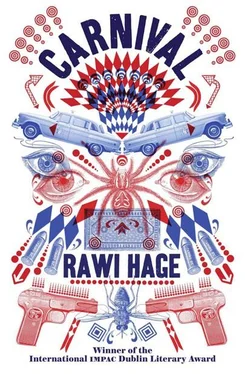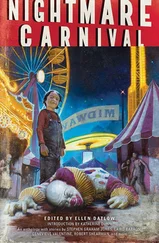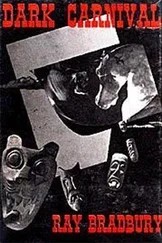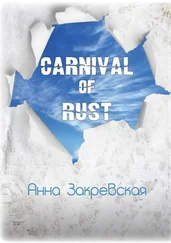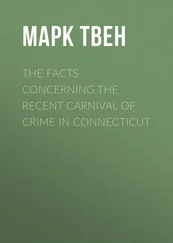Then one day Aisha phoned Otto from work and said, Pack the kid’s suitcase, his mother is back.
When Linda showed up at the door with Aisha, she was skinny and had only a plastic bag of clothes in her hand. Tammer stood looking at her from a distance, and with a distance in his eyes he watched his mother cry.
Come here, baby, she said. Come, I am taking you home. The kid looked at Otto, then his mother, and stood motionless. Linda cried and said, You remember Mommy. Come, baby, come, and then she walked towards him and knelt down and hugged him hard, and he looked over her shoulder and out of the little window and into the sky.
Aisha held the kid’s suitcase with tears in her eyes. She handed it to Otto and Otto opened the door and followed the family out into the hallway.
Linda, he said, please call us if Tammer needs anything. He is a special kid, and him being in our lives. . bring him here anytime, our door is always open.
I might, Linda said, taking the small suitcase. I just might. You are good people.
BOLERO
ON MONDAY, I was outside the man’s house by eight. I was tired and my eye was still red from the sports fan’s punch in the face, and after ten minutes of waiting I was ready to leave. But at exactly eight fifteen I saw the man swaggering towards me.
You’re good with roads? he asked.
I am the best around.
That is what I want to hear, the man said. Take me to the Financial District.
Before each stop he gave me a corner, never an address. He’d ask me to wait, then he’d disappear for a few minutes and come back. Once in a while I saw him shake hands quickly with a bureaucrat in a suit or some other variety of shady character.
Sometimes I took a shortcut and drove through back streets, between buildings, and down alleys, and he was impressed with that. I knew exactly what he was doing. He was collecting money and checking on his dealers and I was driving him around.
At one point he asked my name.
I said, Call me Fly.
He laughed. I like this guy, he is careful. And then he said to me, You are a man of contradictions, Fly. You are sometimes honest and other times not.
I smiled.
Why didn’t you keep the bags the other day, man? There was some good, expensive clothing in there.
I have no girlfriend, I said.
He laughed again and handed me a large bill. Yeah, a real fly you are. I’ll call you when I need you. You’re okay with that?
Yes, I am.
Cool. Now fly, Fly.
I WAS HUNGRY, so I decided to stop at Café Bolero. I sat, ate, and joined the spiders’ tables and heard them discussing their rides, their catches in between the swinging of the car doors. I like to listen to them when they are dreaming of houses back in the mountains and overseas. They lace, twist, knit, intertwine schemes; they braid, plait, loop their stories in chains of truth and lies; and then they point, signal, motion, gesticulate, wave, indicate roads, long and short ways, clients who sat, talked, shouted, cried, and escaped.
There was music coming from the ceiling or from somewhere above the tables.
Number 53, the Dancing Spider, as I call him, was standing in the line for food and swaying lightly to the sound of knives and forks. Every year on Carnival nights, the Dancing Spider retires his car around eleven and goes down to Club Ballayou. He dances the balla balla and the bachata and the rumba with contingents of women. These ladies, who live in remote areas of the countryside, have bused in from far and wide to dance at the notorious Ballayou. Married and unmarried, middle-aged, nicely round and voluptuous, they are tired of Sam and Bob on the TV, tired of fantasizing about bubbly virtual heroes on daytime soap operas. These ladies want to dance, they want to get down with the real thing, they want to feel thighs and biceps. There is no substitute for the commotion of the tangible, the smells and secretions of the flesh, the large arms of a worker, the balancing of the heels, and the twisting of the dancing rooms.
The Ballayou is the dark, glittering star of the north, the place where love prevails across the barrier of oceans and the petty divide of culture. It is the opener of eyes and of uptight, reluctant, austere asses. Legend has it that every woman will be invited for a dance or two, and no woman will ever leave alone at the end of the night. The ladies will have the chance to parade their heels on tables surrounded by dark men, with blinking eyes and lips and tongues stretched to scoop every drip of liquid nectar that falls from above. Dogs are women’s best friends, and these stray dogs, who have navigated north in the direction of the tail of the Big Bear of the Milky Way, are thirsty African jackals, desert Arabs, stomping gypsies, and seasoned Latinos howling with anticipation for the luscious, the plump, the healthy, the bumptious, the tubby, the generous. These dogs wait with the smiles of the hungry and the jingling hips of dancing warriors, the burned lips of sweet-talkers with empty, vacant pockets. They gather at the Ballayou like belugas during a feeding frenzy in the Arctic. They come with the charm of the poor and a love for the curvaceous. They come in defiance of the closure of orifices and in celebration of the openness of mouths and ears, and of radiant pot-bellies under the suns of luminous phalluses. These immigrants are fast, young, handsome dancers by night and slaughterhouse workers, construction workers, dishwashers, and taxi drivers by day. They are fishers who grew up in countries of godlike beaches and generous suns. They know the drill. As kids they watched their cousins and older brothers courting northern women, sweeping them off on their small Vespas as soon as the air-conditioned tourist buses landed on the surface of the southern moon. One small step for the northern kind, one large step for the hungry dogs. A woman, these men will tell you, all she needs is a bit of attention, a lovable smile, and the dance of a lifetime. Inside the Ballayou, one strolls beneath plastic coconut trees, beside stools covered in tiger skin, tables laid with Moroccan tin trays, and a tall lady bartender by the name of Jinna B., with a big afro and a magnificent bust. And men, gracious men, who will sweep up a lady’s hand in no time and lead her to a dance.
Listen, Number 53 will tell you, with animated hands. It is like you being the passenger and the beautiful lady being the night driver. If you’re a good night driver, when you see someone hailing a taxi late at night, you never stop right next to the client. You park a few metres away and let the client come to you. This gives you time to check out his walk, his clothes, even the matter of his breath. No one wants to take drunks in his cab; they will just puke and you will have to spend hours cleaning the car and lose your whole night’s earnings. A drunk passenger will pass out on you and you might have to guess where he lives by fumbling in his jacket for a wallet, slapping him in the face to revive him, shaking him by his tie for a confession.
The same thing with the ladies, gentlemen. You have to give them time to observe you, assess your walk. . and do not forget to shine a smile on your face. . choose a lady, lock your eyes with hers, show your friendly teeth, walk straight, never wobble, never hesitate, and when you are there, slowly and gently pull her by the hand towards the dance floor. Move your hips slowly, hold her waist and then let go, hold her hand and brush her waist again. Be attentive, dance with her in mind. Be as suave as a quiet wave. Do not forget your own hips: shake them sideways and never back and forth. Shine your shoes, clean your ears, always have a nice ironed suit on and no hat, it will cast a shadow on your own beautiful eyes.
THE STAGE
AFTER I’D EATEN I left the Bolero and went back to the streets.
Читать дальше
